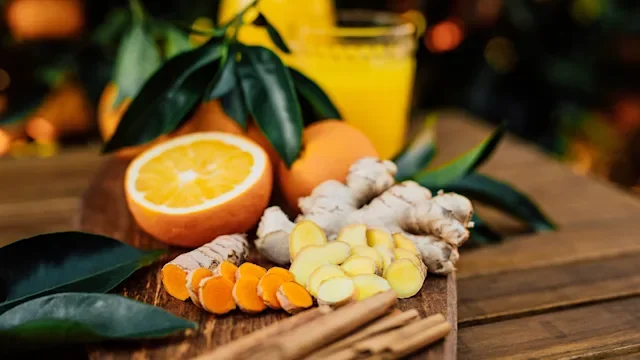Key takeaways:
For thousands of years, people have used functional mushrooms for their health benefits.
Different types of functional mushrooms are said to offer unique benefits. These benefits include improved cognitive function, lowered inflammation, and antioxidant support.
Here’s how three people describe what it’s like to take functional mushrooms regularly.
Functional mushrooms — like reishi, Chaga, and lion’s mane — are known for their potential health benefits. Unlike regular culinary mushrooms, which offer nutritional benefits, functional mushrooms are often used for their medicinal properties. And people typically take them as supplements or put them in teas or food.
Functional mushrooms are not the same as psychedelic, or magic mushrooms, which people take for mind-altering effects. Instead, functional mushrooms are known for supporting immune health. People take them to reduce stress and improve cognitive function and overall wellness.
Here’s how three people describe what it’s like to take functional mushrooms to boost immunity.
Search and compare options
A professional forager says mushrooms improve her overall health
When Amelia South lost her health insurance in 2018, her 12-year herbal medicine and foraging hobby became an urgent quest for better health. That journey eventually led her to functional mushrooms, which she now credits with helping to boost her immune system. And it all started with finding “a little bit of reishi here and there.”
“I started taking reishi right away,” says Amelia, a 40-year-old herbalist and professional foraging instructor who lives near Killingly, Connecticut. “And, boom, I’ve basically been on reishi for 4 years now.”

Amelia then started looking for other medicinal mushrooms that grew in her area. “If I can’t find it myself in the woods or grow it myself, like from a kit in my kitchen, I’m not really interested in it,” she says.
Amelia now carries a mushroom foraging book and an immunosuppression book to help her identify mushrooms. She also turns to online mushroom foraging groups for help.
She takes different mushrooms — some functional, some culinary, some wild — for different things. She likes oyster mushrooms, a type of culinary mushroom, for their antioxidant properties and puffballs, a wild edible mushroom, for their anti-inflammatory properties. And she says that the functional mushrooms she takes help her with everything from allergy symptoms to blood sugar control and overall immune health.
Some of the functional mushrooms Amelia takes are:
How do functional mushrooms differ from other mushrooms? Here are the different types of functional mushrooms and what health benefits they’re known for.
What are psychedelic shrooms, or “magic mushrooms”? Learn about mushrooms that people take for mind-altering effects.
Can lion’s mane mushrooms treat Alzheimer’s? Find out what the research shows.
She makes her own herbal tinctures out of them, which she says work like vitamins: You don’t feel anything right away, but the effect builds up in your system. “I make separate tinctures of each mushroom individually, and then I blend them into a 4 oz bottle,” she says, adding that she takes a half to a full teaspoon each day.
When she was diagnosed with thyroid cancer in fall 2021, Amelia says, she used turkey tail mushrooms to help regulate her gut bacteria. Turkey tail mushrooms are part of cancer treatment in Japan and other Asian countries, Amelia says. “All my cancer markers are down, if not gone,” she says.
Amelia, who has written a book on foraging and teaches classes about it, posts about her journey with cancer and mushrooms on her social media accounts. She enjoys helping others discover the health benefits of functional mushrooms.
Read more like this
Explore these related articles, suggested for readers like you.
Are functional mushrooms the answer to psoriasis?
Kevin McFadden, 29, who works in marketing and advertising in Chicago, had plaque psoriasis for 3 years when he discovered functional mushrooms.
“I was living in Manhattan in 2020 during the pandemic,” Kevin says. “The streets were completely empty. I go into my favorite health food store, and there’s this nice lady working the counter and she’s giving out samples.”

The two, both in masks, discussed the mushrooms, and Kevin learned they are some of the oldest therapeutic treatments in the world. He was also told they are“incredible for the immune system.” Given what was happening in the world with the COVID-19, he thought he’d give the mushrooms a try.
“I’ve maintained the longest streak of positive health in my entire life,” he says. “I don’t know if I can attribute it all to functional mushrooms, but I have remained well in the past four winters, which is usually a time where I fall ill.”
And his psoriasis, which covered half his body from 2017 to 2020, is in remission.
“I was told this is irreversible,” he says of having a plaque psoriasis diagnosis. “My whole mission was: I don’t want to go on immunosuppression drugs. I want to find a way to heal this naturally.”
He adds, “I started adopting cleaner eating, looking at how to reverse inflammation. That’s really what functional mushrooms are touted for. Their incredible anti-inflammatory property, antioxidant profile, great for your gut, great for the immune system — it really aligns super closely with the natural journey I was on for my own health.”
Kevin says he often researches immune health by reading studies in reputable medical journals. Then, he adjusts his diet accordingly.
With functional mushrooms, he learned about 8 to 10 that were good for a variety of reasons. He decided taking a blend of mushrooms with various benefits would be the best approach. Now, he buys organic powder blends and puts them in his smoothies and protein shakes.
Kevin posts about his progress on social media. And his aunts now take functional mushrooms after hearing about his success.
“This is one thing I’ve kept in my tool belt the last 4 years,” Kevin says. “It feels like a security blanket because it’s been working so well for so long and my health has only continued to improve. It’s something I don’t want to risk living without at this point.”
Returning to the land for healing
Lenny St. Laurent, a 48-year-old carpenter, grew up in south Florida spending time with his Seminole relatives.
“We cultivated all different types of food sources from the land — mushrooms, plants, and more,” says Lenny, who now lives in Newport News, Virginia.

About 12 years ago, when Lenny was diagnosed with a 2-inch mass in his right lung, he didn’t let doctors biopsy it.
“I’ve had a lot of cancer in my family, and I’ve watched a lot of people slowly go away,” he says.
Instead, he returned to his Native American roots and researched natural ways to heal himself. That’s how he started taking functional mushrooms.
“Certain mushrooms are super beneficial to your health,” he says. “Like the turkey tail mushroom, which is a super immune-booster and has a chemical compound that helps you fight the big cancer naturally.”
Lenny began taking a supplement blend of extracts from 17 mushrooms, including turkey tail. He also cut sugar from his diet and added supplements of turmeric, a plant known for its anti-inflammatory properties, to his regimen.
“Four months later, they came back to do another scan of me, and the mass had dissolved to nothing,” he says.
Lenny, known as “Lenny of the Land” on Instagram and TikTok, now harvests mushrooms, like lion’s mane, in nature. Then, he uses them to make tinctures to boost his immune system.
“Whenever I feel a scratchy throat or anything, I put a couple drops, like 30 mg, under my tongue (sublingual once a day) and it’ll be gone in a couple days,” he says.
He’s even converted some of his coworkers.
“They call me ‘the mushroom man’ and ‘the medicine man,’” Lenny says. “I’m no doctor, by any means. I’m just a normal guy who does my thing, and the word gets out and people come to me. I just want to lead people in the right direction, and I don’t want any money for it.”
Lenny encourages people to do their research, join online mushroom groups, and ask questions.
“Start dabbling,” he says. “It’s nothing to be afraid of. It’s something we should have been taught our whole life.”
What does the pharmacist say?

Amy Gragnolati, PharmD
Pharmacy editor
Functional mushrooms — also called medicinal mushrooms — have been used for thousands of years to improve health. Today, there are hundreds of functional mushroom species. People who take them have reported a wide range of health benefits, from boosting the immune system to lowering blood glucose (sugar) and treating Alzheimer’s disease. Anticancer effects have also been reported.
Some small studies have found there are health benefits to taking functional mushrooms. However, there aren’t many well-designed human studies that have looked at their effects. And the FDA doesn’t evaluate the safety or effectiveness of functional mushroom products. So while functional mushrooms may not be harmful for most people, we don’t have a lot of data to say what effects they truly have.
If you’re interested in trying functional mushroom products, talk to a healthcare professional first. Even if your healthcare professional isn’t knowledgeable about functional mushrooms, they may be able to point you in the right direction. They can also review your medical history with you and help you check for potential interactions with any medications you take. You can also consider talking to a naturopathic practitioner.
If you want to try a functional mushroom product, consider trying one type of mushroom at a time. That way, you can track its effects more easily. Also, remember there are proven ways to achieve certain health goals. So, for example, if you’re interested in functional mushrooms for immunity, you can also boost your immune health by eating a nutrient-rich diet and getting enough sleep (7 to 9 hours).

Why trust our experts?





















